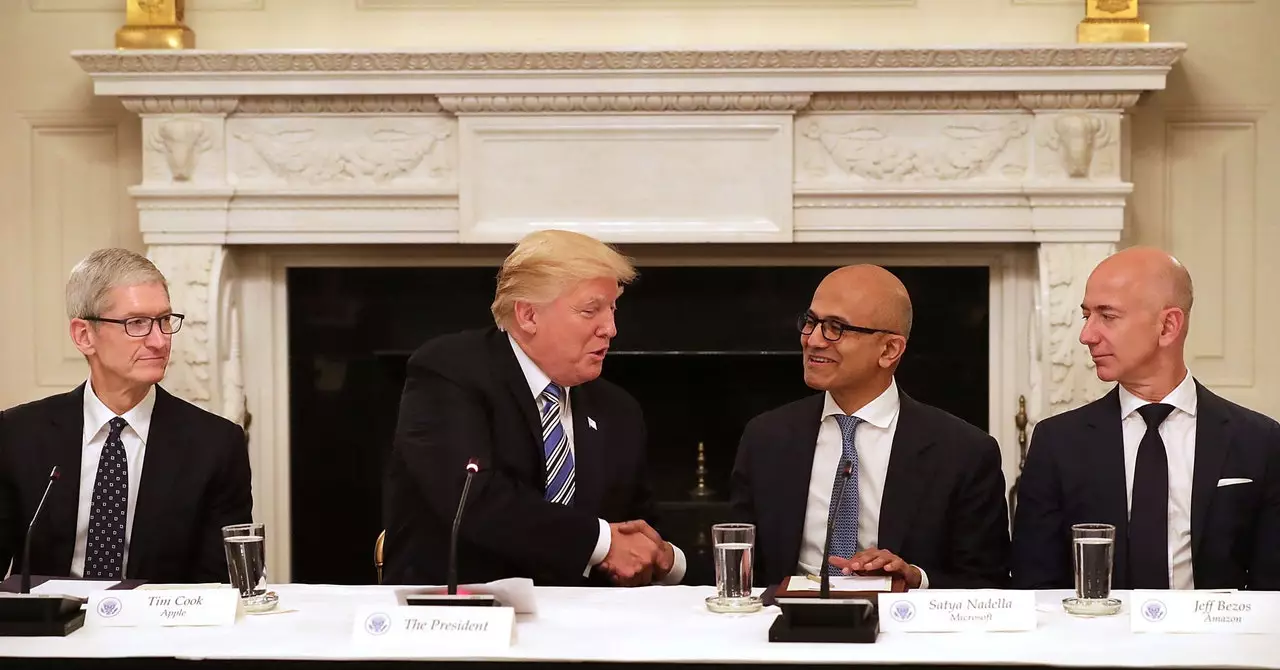As the political landscape evolves, former President Donald Trump’s rhetoric and policy proposals regarding tech regulation are surging to the forefront of the electoral discourse. The implications of his comments are profound, especially for the future of big tech and cryptocurrency companies, which have faced heightened scrutiny and regulatory actions in recent years. This article delves into Trump’s statements, his promised changes in leadership, and the anticipated impact on the tech industry moving forward.
One of the most striking moments in Trump’s recent campaign was his pledge to dismiss Gary Gensler, the current chairman of the Securities and Exchange Commission (SEC). Gensler’s tenure has been characterized by aggressive enforcement against digital assets, particularly targeting cryptocurrency firms through a series of lawsuits. Trump’s promise resonated strongly with his base, which has been increasingly frustrated with the regulatory environment under the Biden administration. Many in the crypto community view Gensler’s actions as overly punitive and detrimental to innovation, signaling a strong desire for a more lenient regulatory approach.
Alongside this, Trump has made headlines with his commitment to commute the life sentence of Ross Ulbricht, the founder of the infamous Silk Road online marketplace. Ulbricht’s platform, which enabled illegal trade and was a pioneer in using bitcoin as a currency, has become a focal point in the debate over the fairness of sentencing in the digital age. The disproportionate nature of Ulbricht’s punishment has been highlighted by advocates who believe that the focus should instead be on addressing broader issues surrounding drug policy and internet freedom.
Another contentious figure in the landscape of tech regulation is Lina Khan, the current chair of the Federal Trade Commission (FTC). At only 35, Khan has become a polarizing figure in the tech industry due to her rigorous stance on antitrust enforcement against major corporations such as Google and Meta. Critics, including high-profile Trump supporters, have labeled her tenure a disaster for business, suggesting her approach stifles innovation and growth. Prominent voices like Elon Musk have hinted at her likely removal should Trump regain the presidency, pointing to a broader trend in shifting the balance of power and influence away from strict regulatory measures.
The pressure from high-profile donors and analysts in favor of easing regulations could signal a dramatic shift in how antitrust cases are handled going forward. Trump’s administration might continue to pursue existing cases, not so much as a matter of principle, but as leverage to negotiate favorable outcomes regarding content moderation and free speech—a primary concern for many conservative factions.
While Trump has not articulated specific anti-trust policies akin to those championed by Khan, he has expressed a desire to address the perceived biases in search and social media platforms. His statements hint at an effort to create a more balanced playing field in digital spaces, which he and other conservatives allege are systematically biased against them. For instance, discussions surrounding Google’s acquisition of YouTube have turned into a discussion point about market concentration and the implications of censorship.
This perspective aligns with incoming Vice President J.D. Vance, who has championed the idea of breaking up these tech giants as a potential solution to what he perceives as systemic censorship. Vance’s approach underscores a growing frustration among conservatives who believe their voices are marginalized in critical public discourse.
As the political climate changes, whether Khan continues to hold her position will be an important bellwether for the future of tech regulation. Speculation abounds that a renewed Trump administration would revisit existing lawsuits against large tech entities, potentially using them as bargaining chips for more significant policy discussions related to speech and content moderation.
A Trump-led presidency promises to introduce dramatic shifts in the regulatory landscape governing technology and finance. With calls to change leadership at key regulatory agencies and address the challenges facing both the crypto realm and big tech, Trump’s campaign underscores a pivotal moment. Discussions are no longer merely about governance but touch on broader themes concerning free expression, corporate power, and the role of the internet in democratic discourse. As this narrative develops, the tech industry will need to brace itself for an inevitable realignment.


Leave a Reply
You must be logged in to post a comment.